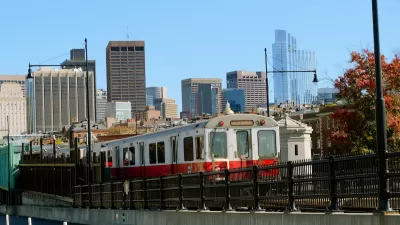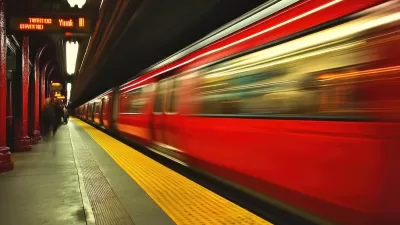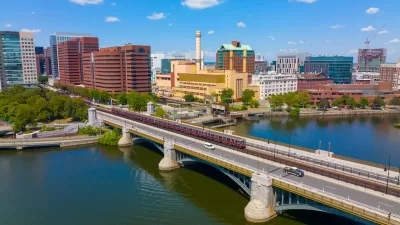The board voted to include the T’s on-demand paratransit service in the discount program, prompting concerns about cost.

The Massachusetts Bay Transportation Authority (MBTA) board approved a new 50 percent discount for low-income riders on its transit services, including paratransit service, reports Bruce Mohl for CommonWealth Beacon. “Details on enrollment and income verification are still being worked out, but the half-off fare will be available to anyone earning less than 200 percent of the federal poverty level, which is about $30,120 for a single person or $62,400 for a family of four.”
T officials expressed concern about including the paratransit program in the discount, which is expected to increase ridership in a system already shortstaffed. The RIDE program is projected to cost “well over half” of the total discount fare program cost. “Gov. Maura Healey in her budget proposal for the coming fiscal year included $45 million collected from the millionaire tax to help pay for the low-income fare in its first year of operation. It’s unclear whether the House and Senate will support that level of funding in the coming fiscal year, let alone in future years.”
According to Brian Kane, the executive director of the MBTA Advisory Board, “the average cost to the T of a RIDE trip in the core service area is $104. Stiehler said the average cost to the T per trip in the core service area is $72, while the current fare is $3.80.”
FULL STORY: MBTA board approves low-income fare

Planetizen Federal Action Tracker
A weekly monitor of how Trump’s orders and actions are impacting planners and planning in America.

Map: Where Senate Republicans Want to Sell Your Public Lands
For public land advocates, the Senate Republicans’ proposal to sell millions of acres of public land in the West is “the biggest fight of their careers.”

Restaurant Patios Were a Pandemic Win — Why Were They so Hard to Keep?
Social distancing requirements and changes in travel patterns prompted cities to pilot new uses for street and sidewalk space. Then it got complicated.

Platform Pilsner: Vancouver Transit Agency Releases... a Beer?
TransLink will receive a portion of every sale of the four-pack.

Toronto Weighs Cheaper Transit, Parking Hikes for Major Events
Special event rates would take effect during large festivals, sports games and concerts to ‘discourage driving, manage congestion and free up space for transit.”

Berlin to Consider Car-Free Zone Larger Than Manhattan
The area bound by the 22-mile Ringbahn would still allow 12 uses of a private automobile per year per person, and several other exemptions.
Urban Design for Planners 1: Software Tools
This six-course series explores essential urban design concepts using open source software and equips planners with the tools they need to participate fully in the urban design process.
Planning for Universal Design
Learn the tools for implementing Universal Design in planning regulations.
Heyer Gruel & Associates PA
JM Goldson LLC
Custer County Colorado
City of Camden Redevelopment Agency
City of Astoria
Transportation Research & Education Center (TREC) at Portland State University
Camden Redevelopment Agency
City of Claremont
Municipality of Princeton (NJ)





























